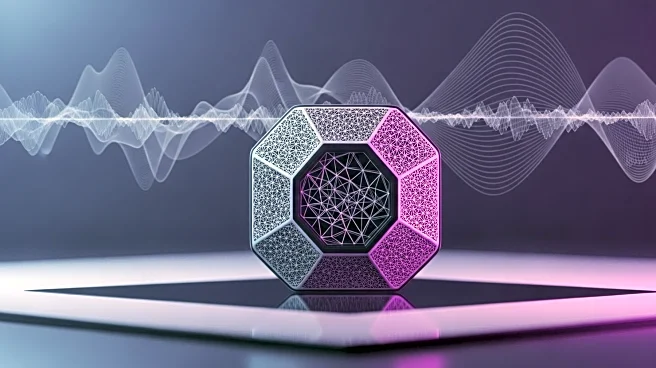What's Happening?
Physicists have discovered a method to bypass Heisenberg's uncertainty principle, a fundamental concept in quantum mechanics that limits the precision of measuring a particle's location and momentum simultaneously. The researchers, led by Christophe Valahu from the University of Sydney, have introduced a 'Goldilocks Zone' for uncertainty, allowing scientists to extract relevant information from quantum systems. This approach involves measuring a particle's modular position and momentum, which provides similar information without violating the principle. The technique could enhance quantum sensing applications in navigation, medicine, and astronomy.
Why It's Important?
The breakthrough in circumventing Heisenberg's uncertainty principle holds significant implications for quantum sensing technology. By redistributing uncertainty, researchers can achieve more precise measurements of tiny changes in a particle's position and momentum, which are crucial for detecting and tracking signals in quantum systems. This advancement could lead to improved quantum sensors, benefiting industries reliant on precise measurements, such as healthcare and space exploration. Additionally, the integration of quantum computing and sensing technologies may foster new metrological tools, transforming current sensing methodologies.
What's Next?
The research team plans to further explore the potential of their quantum sensing technique by collaborating with quantum computing experts. They aim to refine the protocol and validate its effectiveness in distinguishing signals amidst noise in quantum computers. This could lead to the development of new technologies that enhance signal measurement and noise correction. As quantum technology continues to evolve, the integration of sensing and computing may unlock innovative solutions across various fields, driving advancements in measurement science and technology.
Beyond the Headlines
The discovery highlights the growing intersection of quantum computing and sensing, emphasizing the potential for collaborative innovation. By leveraging quantum error-correcting codes for sensing, researchers are redefining traditional approaches to measurement. This paradigm shift may inspire further exploration of quantum technologies, fostering interdisciplinary research and development. As the field expands, ethical considerations regarding the application of quantum technology in sensitive areas, such as privacy and security, may arise, necessitating careful evaluation and regulation.










